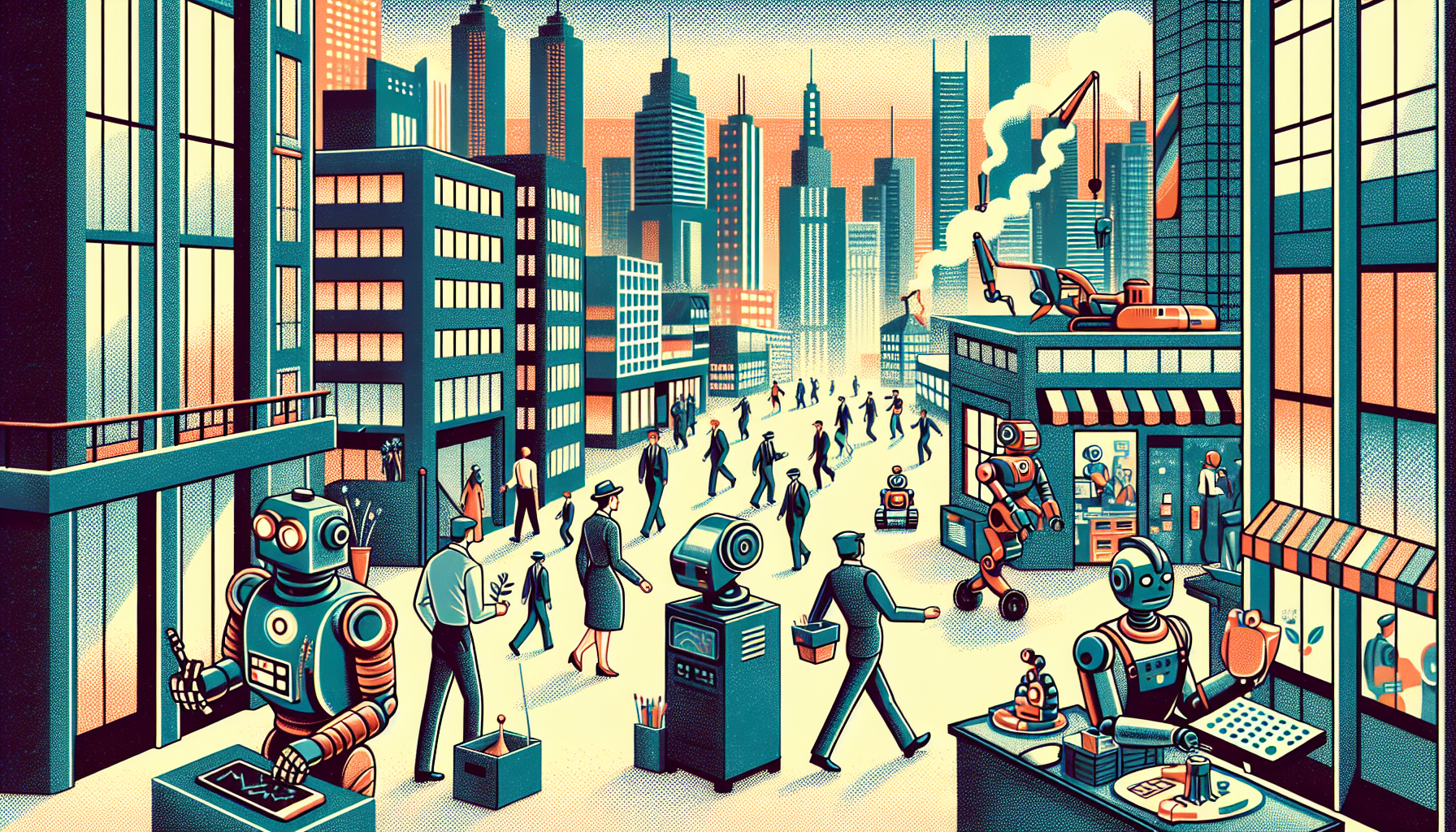AI-powered robots are quietly changing the way we work. Their influence can be seen everywhere—from busy city streets to factory floors around the world. These machines are fast, accurate, and can handle tasks with a level of consistency that humans cannot always match. As a result, they are not just helping us; in many cases, they are beginning to take on jobs that people used to do. This transformation carries deep meaning for the future of work.
Robots and Public Safety
In public spaces across countries like China, a new kind of police officer is starting to appear. The PM M01 humanoid police robot is designed for public safety duties. It uses facial recognition to scan crowds, and it can read license plates to help identify vehicles. The robot’s waist can rotate almost all the way around, allowing it to observe a wide area without moving its feet. This design makes it easy to deploy the robots in crowded places, providing extra eyes to help keep people safe.
These robots are not replacing police officers entirely, but they are making important safety work more efficient. Their introduction signals a future where robots will stand alongside humans to protect communities.
Factories: The Rise of Automation
Manufacturing is another field where AI-powered robots are leaving a deep mark. By the year 2025, industry experts predict that about two million factory jobs could be taken over by robots and automated machines. Factories worldwide are drawn to automation because it promises higher speed and lower costs, with fewer mistakes.
This change brings real challenges. For factory workers, it can mean facing the fear of losing their jobs. At the same time, automation pushes us to think about the value we place on human skills and what kinds of work people will be doing in the future.
The Job Market: Worry and Change
As robots and artificial intelligence become more common at work, many people are starting to worry. Researchers report that nearly thirty percent of workers are concerned that their jobs might disappear to machines by 2025. Younger employees—those who are just starting their careers—often feel this anxiety most strongly.
It is true that machines are beginning to take over tasks that once needed human hands and human minds. Yet, new types of jobs are emerging at the same time, changing the way we think about our careers.
Leaders in the AI Revolution
Large companies have already begun to shape the future by using artificial intelligence in their everyday work. Businesses such as Google, IKEA, and Salesforce are turning to AI not just for speed, but also to save money and cut down on errors. As technology improves, more businesses will follow this path, weaving AI deeply into the fabric of their operations.
New Paths and Fresh Opportunities
Despite the jobs that are being replaced, AI is opening doors to new possibilities. Millions of workers around the globe are expected to retrain over the next few years, moving into areas that need a human touch or special skills that AI cannot easily copy. Roles in programming, servicing AI systems, and jobs that require creativity or complex decision-making are becoming increasingly important.
The workforce is not shrinking; it is shifting. People who learn new skills and adapt to technology will find meaningful roles in this new landscape. The future will belong to those who can work alongside machines, guiding them, maintaining them, and doing the things only humans can do.
The Road Ahead
AI-powered robots are transforming work in lasting ways. They bring challenges—especially for those whose jobs may change or disappear. But they also bring hope, offering new opportunities and showing us what can be achieved when people and technology work together. As we move forward, learning and flexibility will be more important than ever. In this new era, the ability to grow and adapt will help us find our place beside the machines and shape a brighter future for all.

Leave a Reply